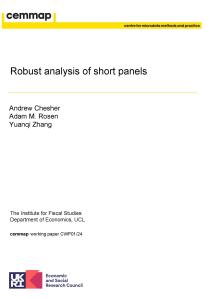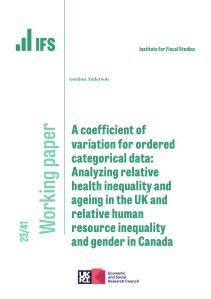Recent theoretical work has shown the importance of measuring microeconomic uncertainty for models of both general and partial equilibrium under imperfect insurance. In this paper the assumption of i.i.d. income innovations used in previous empirical studies is removed and the focus of the analysis is placed on models for the conditional variance of income shocks, which is related to the measure of risk emphasized by the theory. We first discriminate amongst various models of earnings determination that separate income shocks into idiosyncratic transitory and permanent components. We allow for education- and time-specific differences in the stochastic process for earnings and for measurement error. The conditional variance of the income shocks is modelled as a parsimonious ARCH process with both observable and unobserved heterogeneity. The empirical analysis is conducted on data drawn from the 19671992 Panel Study of Income Dynamics. We find strong evidence of sizeable ARCH effects as well as evidence of unobserved heterogeneity in the variances.








